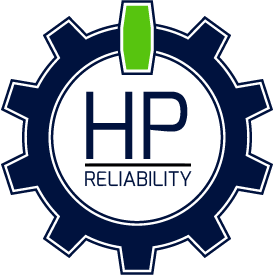How to Reduce Meeting and Spend More Time on Driving Plant Performance
 Another great method of becoming overwhelmed with work as a Maintenance Professional is to fill our day full of meetings. Worse, those meetings usually do not provide any value to you, nor do you have any inputs into the meeting.
Another great method of becoming overwhelmed with work as a Maintenance Professional is to fill our day full of meetings. Worse, those meetings usually do not provide any value to you, nor do you have any inputs into the meeting.
We all know the meetings we dread going to, not because they are long, or the people in them, but because we know that it is a complete waste of time and is preventing you from accomplishing important maintenance & reliability tasks.
Next to emails, meetings are one of the most common complaints as a time waster that prevents the department and business from moving forward. Some meetings are required, and some need you the Maintenance Professional, but not all.
Throughout the rest of the article, we will cover how the Maintenance Professional can identify, evaluate and end those ineffective meetings.
What Meeting?
To identify which meetings you should remove from our calendar, you need to evaluate each meeting against defined criteria. Start by listing all the meetings you attend. Make sure to list the following for each meeting.
- Purpose – what purpose does this meeting serve?
- Attendees – who is attending this meeting?
- Performance measures – what KPIs or Metrics are reviewed during this meeting?
- Inputs – What inputs (reports, metric, feedback) do I bring to the meeting?
- Outputs – What actions do I take from the meeting?
With these items listed for each meeting, you can then begin to objectively evaluate each meeting.
Evaluate the Meeting
Based on the list of meetings and the specifics of each, you can begin to evaluate each meeting against specific criteria. Ask the questions listed below for each criteria.
Purpose
- Does this meeting help progress my department or business goals?
- Does this meeting serve a purpose (or once did, but no longer does)?
If you answer “No” to these questions, then chances are you can eliminate the meeting, if you answered yes, proceed.
Attendees
- Is someone else present from maintenance?
- Are they the right person for this meeting or am I?
If someone else from maintenance is there, does the meeting require the time of multiple maintenance people? Determine the best person to attend the meeting, and free up the other people.
Performance Measures
- Is this meeting based on reviewing KPIs and driving actions to improve the performance of the KPI?
If the meeting does not have a specific measure that is reviewed and corrective actions implemented, the meeting may not be of value to you or your team.
Inputs / Outputs
- Are you or someone from maintenance required to supply information that will influence the meeting?
- Are you or someone from maintenance assigned actions from the meeting?
If you are not providing key inputs or taking away from actions from the meeting, it is most likely wasting your time.
Work through these questions for each meeting to evaluate what meetings you can eliminate from your schedule.
Eliminate the Meetings
Armed with your analysis approach each of the meeting chairs / organizers. Explain to them, that with the increasing pressure to improve maintenance, reliability and hence profits, you have conducted a review of the all meetings you attend. Based on your analysis, explain to the meeting chair, that while the meeting is beneficial for some, it is no longer beneficial for you at the moment.
Summarize why the meeting is no longer beneficial to you, and that you will no longer be attending. Be prepared for some push back, as this may offend the meeting chair. You can employ some measures to put the chair at ease;
- Explain this is trial and we will see how it goes over the next few weeks with you not attending.
- Decided that another individual is better suited and so and so will be there from now on
- Ask to be sent the meeting notes so you can still get the information, but in a reduced time.
Your “Free” Time
After this meeting evaluation and elimination of meeting you attend, you will have freed up anywhere from 30 minutes a week to 8+ hours per week. This newly found “free” time can now be used to drive plant performance through new or refined maintenance & reliability practices. To make sure your effectiveness continues, you should;
- Be sure not to waste the new time. Setup appointments in your calendar during the old meeting times and focus on a specific area, process or project during that time
- Be sure not allow new meetings in your calendar, without evaluating them against the criteria above
How much time do you anticipate you lose each week due to meetings? What could you do with the new “free” time you recover? Becoming effective is critical to the success of the maintenance department and the business.
In the next post, we will discuss how a maintenance professional can make the meetings they are involved in move effective.
I’m James Kovacevic
Eruditio, LLC
Follow @EruditioLLC[/fusion_builder_column][/fusion_builder_row][/fusion_builder_container]
